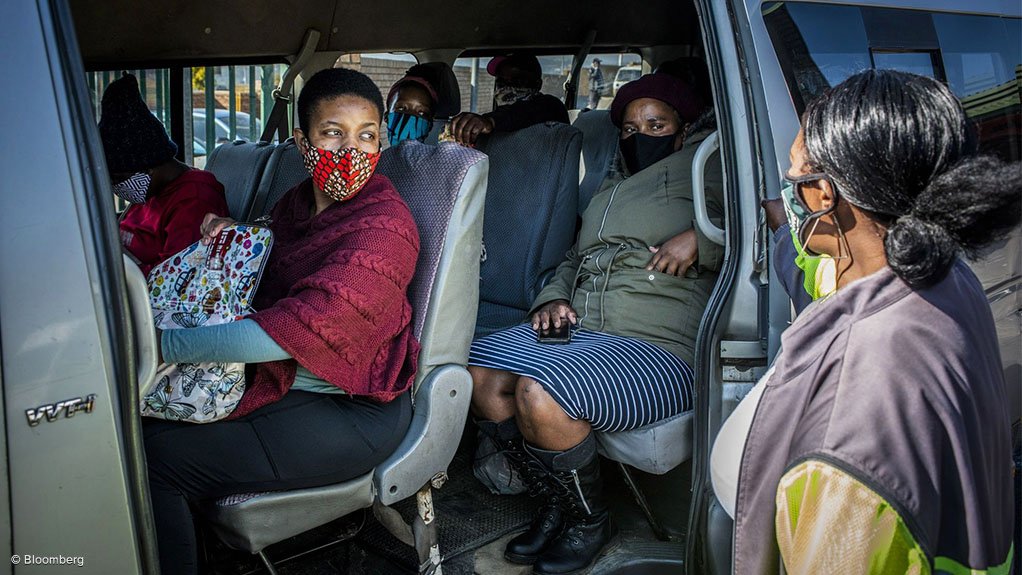The South African National Taxi Council (Santaco) claims the City of Cape Town has added another condition that allows authorities to impound minibus taxis - being off an agreed route - and alleges that the move and recent impoundments are in breach of an agreement the council had reached with the City and Western Cape government.
It made the claim in papers filed in the Western Cape High Court in an urgent application for an interdict against the City.
In the application, which is scheduled to be heard later on Thursday, Santaco is seeking the return of impounded minibus taxis.
It argues that the taxis were impounded outside of the terms of the 10 August agreement, which ended the taxi stayaway and the violence associated with it.
Santaco wants the court to find that the City of Cape Town breached the terms of the truce agreement, which limited impoundments to three particular transgressions:
- where a minibus taxi is operating without an operating licence;
- where the driver of a minibus taxi drives the vehicle without a professional driver's permit or driver's licence; and
- where the minibus taxi is unroadworthy.
According to the papers, Santaco also wants the court to direct the City and the Mobility MEC Robert Mackenzie to immediately release all minibus taxis impounded after the conclusion of the settlement agreement on 10 August, which the council says have been impounded on grounds other than those three transgressions.
On 11 August, the day after the agreement, eight taxis were impounded, and on 12 August, another six, according to Santaco.
The City will argue its case when the matter starts, but Santaco's Nceba Enge said that mayoral committee member for safety and security JP Smith said only one impoundment - for overloading - was made by mistake.
Santaco did not have time to present the reasons for the first eight impoundments to the court, but of the six, it stated that one impoundment was on the basis that the minibus taxi operated on a charter permit.
They understand this to be in line with the provisions of the settlement agreement.
Two impoundments were on the basis that the minibus taxis operated off-route - a term of settlement that, they argue, Smith added in after the agreement.
Two impoundments were because the drivers did not have their valid driver's licence or professional drivers' permits with them.
One driver said he left his licence and permit at home, so Santaco feels it's not the same as not being licensed or not being permitted to operate.
"We were unable to get the relevant driver's licence and permit in the short period of time available to us, but shall have same ready at the return date," Enge's affidavit continues.
Santaco also denies that the terms of the agreement reached on 10 August contained the same proposals as before.
He said the initial proposals to Santaco included these other terms:
- Driving while intoxicated;
- a failure to comply with an instruction of a traffic/peace officer;
- driving in yellow/red lines;
- driving in an oncoming traffic lane;
- driving on the shoulder of road;
- driving on the pavement;
- inconsiderate driving;
- ignoring traffic signals or stop streets; and
- causing an obstruction to road traffic.
These were meant to be discussed over two weeks with the task team to determine whether they too are impoundable offences, or whether a fine is more appropriate.
Enge said the claim that they arrived heavily armed for a task team meeting was not true. It was their bodyguards who were armed, not them.
Santaco contends that the minibus taxi industry plays an important role in the economy, but the City promotes the idea that it is lawless.
They only intended to start a stayaway on 7 August to give commuters time to make alternative arrangements, he continued.
However, a large law enforcement operation at the station deck, which was accompanied by stun grenades and officers smashing a taxi window, enraged them so much that they had an urgent meeting and brought the stayaway forward.
Since then, said Enge, Mayor Geordin Hill-Lewis called them "thugs" and "mafia" in public statements, inferring that they were worthy of the extraordinary limitations to their individual and economic rights.
Santaco cites the City of Cape Town, Mackenzie, and the Western Cape Provincial Regulatory Authority, a judicial body established in terms of the provisions of the National Land Transport Act (NLTA), and national Minister of Transport Sindisiwe Chikunga.
Enge contends that law enforcement officers are given impounding quotas targeted at the minibus industry - five minibus taxis per day per area and 35 in total per area per week.
"The area heads are raked over the coals if such quotas are not met," he submits.
"The fragile peace should be protected at all costs. The respondents are acting contrary to the settlement agreement and should be stopped from doing so lest we face another crisis. It was an abuse of powers and overreach that caused the strike."
Meanwhile, the Western Cape government and City of Cape Town welcomed the opportunity to make the terms of the agreement that ended the strike an order of the High Court.
"This will put an end to misinformation about the exact terms agreed to between the City, the WCG, and the South African National Taxi Council, and will lessen the potential for conflict between taxi operators and officers on the road," they said in a statement.
"Santaco's interdict application is an opportunity to make the full terms of the agreement an order of court today (Thursday). As per the agreement signed by all parties, impoundments continue under the National Land Transport Act for vehicles driving without an operating licence, driver's licence or PDP, or which are not roadworthy," said the City's mayoral committee member for urban mobility, Rob Quintas.
EMAIL THIS ARTICLE SAVE THIS ARTICLE
To subscribe email subscriptions@creamermedia.co.za or click here
To advertise email advertising@creamermedia.co.za or click here











